The final classes in the speech therapy group in PhGos. Speech therapy literacy class “Knowledge Country
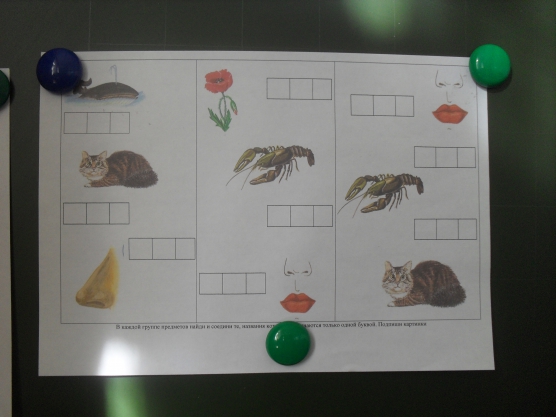
Tatyana Metzler
“Playing the game“ Connoisseurs ”. The final complex speech therapy session in preparatory group
speech Therapist Metzler T.V.
Theme: “Playing the game“ Connoisseurs ”
Goals: To consolidate, systematize the knowledge of children acquired in speech therapy classes during the school year, to consolidate the ability to use them in practice
To be able to distinguish the sound against the background of the word, to determine its position in the word;
Divide words into syllables, make words from these syllables;
Perform a full sound letter word analysis (lay out the word pattern, match the word to the given pattern);
To consolidate knowledge about prepositions, the ability to choose the right preposition to this proposal;
Consolidating writing and reading skills;
To fix the concepts: word-objects, word-signs, word-actions; be able to pick them up to a given word;
To consolidate the skills of classification, to be able to select generalizing words (by lexical topics)
To consolidate the ability to make and use complex sentences in independent speech.
To cultivate the skills to work in a team of peers, developing feelings of mutual assistance and tolerance.
Develop mental processes (thinking, memory, attention)
Equipment: spinning toy, circle with sectors, envelopes with tasks, handouts for sound analysis, cards with words, cards with sentences with missing words, felt-tip pens, fishing rods, toys and pictures on magnets, cards with syllables in the form of apples on a wood model, desktop -pring games "The fourth is superfluous", "Read the word by the first letters" or "Rebus", the lotto "We read it ourselves", chips for promotion, prizes-stickers, colored pads.
1 Organizational moment
2 Division into teams
Using a fishing rod, “catch” a fish-picture. Name it, determine where in the word is the sound "P". Come up to the table on which there is a suitable map-diagram (the sound at the beginning of the word is 1 table, the sound in the middle is 2 table, the sound at the end is 3 table)
3 Game "Connoisseurs"
Rules of the game (explained to children):
Speech therapist rotates the top, one of the 6 sectors drops out along the arrow. The task in the sector on the card reads the child. The execution time of each task is recorded using an hourglass. For the correct execution of tasks, teams receive chips, the number of which is summed up at the end of the game.
Each team member will receive their task or one for all, players can help each other.
Sector №1 "Do not make mistakes"
Task: "Choose a scheme for the word"
The team is given a large map divided into 6 squares. A word is written in each square. It is necessary to read the words, find the picture corresponding to the word, and then pick up the card with sound circuit this word.
Sector №2 "Magic Tree"
Task: Collect words from syllables.
On the layout of the tree are fixed "apples" - cards with syllables of which children make up words. For each word receive a chip.
Sector №3 "Be attentive"
Task: Read the word, lay out the sound-syllable scheme.
Each child receives a card with the word and performs a complete sound analysis of the word using an individual handout. The speech therapist asks the children questions: how many syllables in a word, sounds; name the sounds in order; give a characteristic sound; how many vowels in a word, consonants, etc.
PHYSICAL EFFICIENCY with elements of the logorhythm "Happy people"
Sector №4 "The word is lost"
Task: read the sentence, instead of the points, insert the missing word (preposition).
Each child is given a card - punch card with the missing word. The child with a marker can write the necessary preposition.
Sector number 5 "Guess it!" Explain! ”
Assignment: a) the “Fourth Extra” game
It is necessary to exclude one of the four pictures on the map and explain why it is superfluous, calling the three remaining words generalizing. The answer should be expanded with the words "because."
b) the game "Rebus"
each child receives a card on which objects are drawn. According to the first sounds of the names of the pictures you need to collect the encrypted word.
Sector №6 “Think up the word”
Children consider three visual supports-maps: one straight line - words-objects, two straight lines - words-actions, a double wavy line - words-signs.
Teams are invited to choose one single subject image on the table.
The task: to think up, pick up 5 words-signs and 5 words-actions for each item shown in the picture.
4 Summing up the game.
All counts received during the execution of tasks are counted. Children are encouraged by prizes - surprises in the form of funny stickers.
Self-analysis classes
1 Lesson is the final at the end of the school year. With children passed all the educational material according to the program, the course correctional education finished. The form of the class is frontal group, the type of class is complex, combining program material of phonetic, lexical and grammatical classes, as well as classes on the development of coherent speech and literacy.
2 In the lesson, correctional, educational, and educational goals and objectives were set and implemented. The choice of goals is determined by the place of occupation in the system of classes (final, its type (complex) and the form of organization (frontal group). The structure of the lesson is non-traditional, in the form of a game using socio-gaming technology (dividing children into groups-teams, changing leaders, combining motor activity and change of stage setting, integration of activities).
The lesson was implemented the principles of student-centered learning:
Natural nature (the lesson is built according to the age of children in this group, speech diagnosis, the leading activity of preschool children - the game)
Differentiated approach (all tasks are selected taking into account individuality, variability is provided within each task)
Interactions (partnership between children and a speech therapist, motivation for communication and mutual assistance)
Freedom of choice (not absolute, but relative): the teacher encouraged children in their choice of solutions and partners.
Reliance on the experience of children (the teacher turned to the individual experience of the child or group)
Problems (all tasks carried elements of the problem, encouraging children to research activities, finding solutions to the problem)
Openness and flexibility (during the course of study, training was not limited to strict limits, but changed at the request of children)
3 There were 11 children with speech in class. pMPK conclusions: moderate dysarthria, OHP level 3. Children studied with a speech therapist for 1 year.
4 This lesson was conducted in an unconventional form, so there is no strict phasedness and adherence to the principle “from simple to complex”. All assignments were selected with the same complexity and combined material from different sections (phonetics, vocabulary, grammar, literacy training) and were chosen randomly by the top. To ensure the maximum physical activity of children and the change of activities, each game task was conducted in different places of the group. Children had the opportunity to work sitting at the tables, sit on the carpet on the pads, stand in a circle and around the tables. A movable logorithmic physical clock was included. This has helped improve the effectiveness of classes, to prevent fatigue of children.
5 All speech and didactic material is selected according to the goals and objectives. At each stage, aesthetically designed visual-didactic and handouts were used, which helped to maintain children's interest throughout the class.
6 All stages of the session are clearly timed. Maintained interest throughout the class. All children were active and attentive. Children showed good knowledge and showed the ability to put them into practice.
Every year at the end of the school year, as part of the “Days open door»For parents, we conduct such final classes. The purpose of these events is to show parents what they have achieved, with what knowledge, skills, and skills children go out of kindergarten.
I have developed a summary of frontal classes for children of the preparatory group. We are on a journey to which the Queen of Knowledge invites us, and since we have a long, dangerous journey, we have to complete a number of tasks from the Queen of Knowledge.
The classes were very much enjoyed by the children, caused a lot of positive emotions, which in turn, was pleasant to the parents.
This lesson is filled with methodical techniques, in particular, elements of health-saving technologies (Relax, physical minutes, aimed at improving fine motor skills, working with a crumpled sheet of paper, "Alphabet of Body Movement"). Correctional tasks are clearly visible through various didactic word games aimed at developing sound analysis, learning to read, developing graphic skills, visual perception of letters, words.
Summary of the final speech therapy classes for children of the preparatory group with ONR
"Journey to the Land of Literate and Beautiful Speech"
Objective: To systematize the knowledge and skills to prepare children for schooling.
Tasks: correctional-educational: to teach children to solve crossword puzzles, solve puzzles. Learn to recognize letters from different fonts, to distinguish between correctly and incorrectly typed letters. Teach initial mastering skills written speech. Summarize children's ideas about “School Supplies”.
Corrective development: improving the skills of sound analysis, syllabic analysis of one-, two-, three-syllable words. Development of individual abilities of children in creative speech activity. Encourage children to make statements and descriptions of what they have seen. Improving fine motor skills, visual perception, logical thinking.
Correctional and educational: to cultivate a sense of cooperation, the ability to work in a team.
Equipment: telegram, plates with capital letters of the name of each child, cards with sounds (О, Т, Г), cards-symbols with the characteristics of sounds, a casket, crumpled sheets of paper with not finished letters of the alphabet, "Slagovaya caterpillar", 4 houses with inscriptions: he, she, it, they, subject pictures on the subject “School supplies”, envelopes for each child, with task cards, sticks, tables for reading words, cards from the “Alphabet of movement”, balloons by the number of children, with printed syllables , note, stickers by count children.
Lesson progress:
Children enter the hall. Postman Pechkin makes a letter.
Pechkin: - Hello, kids, is this a preparatory group? "Yes". Then a letter to you. Get it.
Speech therapist: Thank you, but from whom? (The postman has already left).
“Hello guys! I watched you for a long time, experienced your failures, rejoiced at your success. You are very diligent children and worthy, to visit my country, the country of Beautiful and Literate Speech. I invite you, but the way there is very long and dangerous. But I think you will definitely manage, because you are brave, friendly kids. Well, I'm waiting for you. See you the Queen of Knowledge.
Speech therapist: Well, love to travel, then go. Children stand in a circle.
"We are calm, we are calm
We always say beautiful
Clearly and unhurriedly
Repeat necessarily
All that was taught in the classroom. "
Well, take your seat, pay attention, there is a letter on each table, this is the capital letter of your name, find your letter and sit on your seat. The first task is already waiting for us.
Task number 1.
“Tell me about the sounds”
The Queen of Knowledge prepared us three sounds. We need to remember them and give a description. Sounds (O, T, D). Card cards are used.
Task number 2.
"Magic Lumps"
We did not have time to finish one task, we have already prepared another.
The Queen of Knowledge sent us such a casket, and in it lumps (crumpled sheet of paper). Take each one yourself a lump, unwrap. What is there? Correct letters. Only they are not finished. Take a pencil, you need to add one element. Then name the first row, second, third. Well, well done. But we are already waiting for the next task.
Task number 3
"The syllable caterpillar"
That's what a fabulous caterpillar. She carries sounds on her back, they are combined into syllables, and syllables into words. What words you see, name it. (Syllable chain).
Task number 4
"Housewarming"
4 houses with the inscription HE, IT, IT, THEY. A set of subject pictures on the theme "School supplies." Subject pictures are displayed on the houses.
Fizkultminutka
“Soon we will go to school with two fingers walking the table.
And take a briefcase with you, show the square with your hands.
A book, pen, pencil, bend the fingers on his hand.
We in the portfolio will put our show square hands.
We will read, write, show your palms, imitate a letter.
And to learn everything by five, they raise their hands, showing five fingers on their hands.
Rested, now again for the cause.
Task number 5
"The letters are lost"
An evil wizard flew in and stole letters from words. Open envelopes, remove the cards with the words, enter the missing letters. Read the words. Now take your chopsticks and lay out as many chopsticks as there are syllables in each of your words. (Full answer). Are tired. Well, then we go further.
Task number 6
"Read the words"
Task number 7
"The alphabet of gestures"
Please stand on your feet, dear parents can join us. Let's remember what sounds the Queen of Knowledge brought to us at the beginning of the journey, the children remember. And now let's show the “Alphabet of Body Movement” of these sounds. Good Excellent. But we have the following.
Task number 8
"Balloons"
A strong wind blew. All the balls are confused. Take each ball. They have syllables. Find a pair, make up the words. (Two balls - one word).
Well, our journey comes to an end. Look again the casket. Let's see, a note of some kind.
"I beg your pardon,
What didn't you find me
A lot of things, but very happy
That you are here, but the reward. "
Speech therapist distributes stickers for children who lay at the bottom of the box.
Did you enjoy the trip? What is the most memorable?
Rybakova Elena Vyacheslavovna,
teacher speech therapist
Summary of the final speech therapy classes in the preparatory literacy group "Country of Knowledge"
Purpose:Fix the concept of "sound, syllable, word, sentence."
Tasks:
1. Correctional educational:
To summarize and systematize the knowledge of children about the syllable-forming role of a public;
Improve sound analysis skills;
Improve the skills of children in the division of words into syllables, in the preparation of proposals for the scheme;
To strengthen the ability of children to give a full description of the sounds of speech.
2. Correctional development:
To intensify and develop vocabulary and lexico-grammatical structure of speech;
Develop auditory attention, memory, intensify mental activity;
3. Correctional and educational:
To cultivate the ability to carefully listen to each other, to perform the task;
To cultivate a friendly attitude towards each other.
Equipment: letter, traces, letters, envelopes, cabins, subject pictures, words, diplomas.
Course of the lesson
I. Org. moment. (Children sit on the carpet). Guys, I found a letter in the morning. I wonder who it is from?
Ii. Main part. The letter came from the magical "Land of Knowledge", and it was written by a magician named Write-read. He writes that the evil sorceress Zakalyaka stole all vowels. What can happen if vowels disappear? Or maybe we worry in vain? (There are no syllables without vowels, words cannot form without syllables).
If we do not help to return the vowels, then soon the vowels will disappear from all the books of the world, and no one will ever be able to read the books. A book is a source of knowledge; without books, children will not be able to go to school and gain new knowledge.
Wizard Write-read asks us for help. And he sent us train tickets that will take us to the country of Knowledge (pictures are distributed to children). To find your car you have to look at the picture and determine how many syllables are in a word and get into your car (Children approach the tables with the appropriate cars: 1 syllable, 2 syllables, 3 syllables).
“Well done. So everyone is ready. The train leaves ”(follow the tracks).
1. "Arrived." We are at the station, which is called (we raise two tracks) “READ-KA”, “WORD”. What is the word? (children's answers). Take the cards and read the words in a chain (Cards with words are distributed to children who read correctly, that received the corresponding picture).
Well done boys. We coped with the task and we got the letters BUT and Have. (Letters are put on the board).
We hear the ringing sound of wheels. ”
2. Look, we are approaching the station, which is called (raise two tracks) “GUESS-KA”, “LETTER”. What is a letter? Why do we need letters? (children's answers).
Each has envelopes on the table. You task: from the letters in envelopes, make a word. Children perform the task independently.
Well done guys and you coped with this task too and the letter appeared ABOUT.
Rushing train in full spirit! "
3. Look, we are approaching the station, which is called (we raise two tracks) “ALL-KNOWN”, “SOUND”. What is sound? What are the sounds? (children's answers).
Choose a word scheme from the suggested ones, and select a word for it (use words from 3-4 sounds).
- What does this scheme tell? (consider several variants of N / p, in the word one syllable, 3 sounds: consonant is firm, vowel, consonant is solid.)
Another letter returned AND. (The letter is put on the board).
Fizkultminutka
How is it going? - Like this. How do you swim? - Like this.
How do you run? - Like this. Looking away? - Like this.
Waiting for lunch? - Like this. Mashish after? - Like this.
Do you sleep in the morning? - Like this. How are you kidding? - Like this.
Children answer questions, perform movements according to the text.
4. Look, we are approaching the station, which is called (we lift two tracks) “MAKE-KA”, “OFFER”. What is the offer? What is the proposal? (children's answers).
Preparation of proposals for pictures (each has its own) to the scheme (with the preposition: in, under, above, before, for, because of, from under).
Well done! We helped you letter S return home (the letter is put on the board).
5. Look, we are approaching the station, which is called (we raise two tracks) “REFLECT-KA”, “OPPOSITION” The game “TELL A SIDE”
| Sad- cheerful | Inhale-exhale | Long short | Wet wet |
| Friend-enemy | Thin-fat | Summer Winter | Far close |
| Run-stand | Sick-healthy | Day Night | Lost-found |
| Hot cold | Wide narrow | High low | Coward |
| Sharp-blunt | Old-new | Ceiling floor | Start and end |
Well done! We had great rest. And now let's continue our journey. Take your seat. Last vowel returned home Uh (The letter is put on the board).
Iii. The result of the lesson. Did you guys enjoy our trip? (children's answers). What task were you very interested in doing? (children's answers). Which of the tasks you found the most difficult? (children's answers). Evaluated the work of children.
That came to an end our unusual occupation. Let's remember where we visited today? What did we travel on? Tell me how to behave in school? The Queen of Knowledge thanks you and sent us diplomas. All of you guys showed your knowledge today. You were able to overcome all difficulties, obstacles, challenges, you showed that you are ready for school, ready to conquer new heights and get new knowledge.
OXANA YAKUSHINA
Teacher- speech therapist MBOU DSKV number 29.
nizhnevartovsk
Yakushina Oksana Viktorovna
Summary of the final speech therapy classes
at a preparatory literacy group.
purpose: in an entertaining game form to summarize and consolidate the knowledge gained.
Tasks:
Educational: check the strength of children’s learning of the knowledge and skills formed on literacy classes; learn to use them in practice - the game.
Correctional development:
To fix the ability to determine the location of the sound in the word;
Exercise in sound analysis words;
To consolidate knowledge of the difference between vowels and consonants;
To fix the concept in children to give the main characteristics of sounds;
Train in constructing letters and reading wordsconsisting of two syllables;
Develop phonemic hearing and attention;
Develop grammatical structure of speech(consolidate the skill of matching adjectives with nouns in gender, number, case);
Educational goals:
self-cultivation;
raise children skills: work in a team, patiently listen to the questions of teachers, the answers of comrades and respect their opinions;
foster a sense of mutual assistance and help;
raise interest in occupation and love for the native language.
Equipment, materials: Sound recording "Sound letter"the parcel. confectionary caps, medals, red, blue, green, chips; cards with letters, pictures with school supplies, briefcase, colored pencils.
1. Organizational moment
Speech therapist. Dear Guys! Today to us in the group parcel arrived and an unusual letter - sound.
Let's hear it (the recording sounds "Letters" from the Queen of Knowledge)
“My dear young friends! I am the Queen of Knowledge. Today, I invite you to visit, in my Country of Knowledge! I so want to know what you learned from literacy classes. In the Country of Knowledge you are waiting for interesting tasks that you must complete. If you can handle all the tasks, you will receive a reward. Wish you luck!"
2. The main part
But before you go on a trip, prepare our tonguesso that we have them obedient, we will conduct articulation gymnastics.
Task 1. Articulation gymnastics to the music. (Appendix No. 2)
Task 2.
"What are the words?". The division of words into syllables. (Presentation) .
Well, now we can hit the road! I have magic hats that will help us to be in the Knowledge Country.
Close your eyes. One-two-three to the Land of Knowledge us lead!
Task 3.
Tell the guys what is the difference between a letter and a sound?
(The letter we see, write, read, and the sound we hear and pronounce)
Let's remember all vowels with you sounds AO OUY (we drink vowels with different pitch).
“Find the letter”
Children name their name and the sound with which his name begins. Give the characteristic to your sound. Paint the letter of the name in a certain color in advance prepared sheets.
(Red if the name begins with a vowel sound, blue if with a consonant of a solid sound, and a green pencil, if the consonant sound is soft.) Appendix №2.
Task 4
"Guess a riddle" and putting letters on the table.
Sound word analysis "OWL".
"Tablecloth", "Table", "Napkin", "Elephant",
"Chair", "Shoemaker" and "Salon",
"Sleep", "Symphony", "A country",
"Symbol", "Network", "Glass", "Wall".
What a letter it is, children,
Did we meet in the lines of these? (Letter "with").
"Cloud", "Points", "Wasp",
"Knife", "pendant" and "sausage".
Children all know for a long time,
What is similar to the wheel. ( "about")
"Wolf", "Wizard" and "Complete"
All words on ... (letter "at")
Start with this letter
"Watermelon" and "Almanac".
She meets us all
In almost all words. (Letter "but")
Fizminutka.
It's time for us to relax a little.
Task number 5
"What we put in the portfolio"
The formation of plural nouns.
Coordination of numerals with nouns.
3 notebooks - I will put three notebooks in my briefcase.
5 pencils - I will put five pencils in my briefcase.
2 canisters - I will put two pencil cases in my briefcase.
3 brushes - I'll put three brushes in my briefcase.
2 lines - I’ll put two lines in my portfolio.
5 books - I will put five books in my briefcase.
Task 6.
"Collect the word of two syllables»
Children are offered the syllable they need to be interconnected to get the words and find a picture for this word.
Task 7.
"Find the word"
In each group Find items Connect only those names that differ only in one letter. Sign the pictures.
How many consonants in this word? (2) . And how many vowels? (1) . What are vowel sounds?
(after the task is completed, the voice of the Queen of Knowledge again sounds)
"Well done boys! You did an excellent job with all the tasks and for that I will reward you. Well, I say goodbye to you, I will be glad to see again in the Country of Knowledge. See you soon, my dear friends! ”
The result of the lesson.
Speech therapist: What was occupation? What did we do on occupation? What did you like most about occupation?
Application number 2
ARTICULAR GYMNASTICS
The child performs 8 alternating movements. Each movement of the articulation apparatus is accompanied by a movement of the hands. To the music.
1) Squeeze your eyes, wrinkle, clench your fists to open your palms, open your eyes wide.
2) "A lion". Mouth open wide, pronounce the sound AAA, close the mouth, bite the upper lip with the sound. BBB, open your mouth - AAA, close, bite your lower lip - BBB, open your mouth, etc. Hands represent "Fall"that opens and closes just like teeth: open "Fall", close - the lower opened fingers capture the top fist; open "Fall", close - the upper fingers open capture the bottom fist, etc.
3) "Fat" - "Thin"
* Cheeks PLEASE (hands "Ball", wrists and fingers are touching) - TO PULL (palms bend inwards and connect with tubercles, fingers and wrists are separated as far as possible).
** Cheek inflated I deflate alternately: left is inflated., right is blown off and vice versa. Hands represent the position cheeks: left palm ball, right palm straight and vice versa.
4) "Fence" - "Tubule""Fence" - lips parted in a broad smile, hook, so that all the teeth were visible, hands in front of the chest, palms toward themselves with their fingers apart. "Tubule" - the lips of the tubule are stretched out so that the teeth are visible, the hands come together, the palms are joined in front of the chest, the fingers are apart. Child alternates syllables
WE (AND)-MU WOULD (AND)-BU, Py (AND)-PU YOU (AND)~ Woo, gee (AND)-GU and others
5) "Kisses". Lips with a straw, open and close like a beak, palms together, tightly closed, only closed fingers open, imitating the movement of the beak. The baby makes a sound of a kiss.
6) "Spatula" - "Needle""Spatula". A wide tongue lies on the lower teeth. The lips are stretched so that the lower and upper teeth are visible, hands are palm down, close to each other. The child closes and opens his mouth, biting his tongue with the sound of LA-LA-LA, his palms pat in time with the table.
"Needle". The tongue is narrow, stretched forward, palms together.
7) "Cup" -- "Tubule""Cup". The lips are stretched, the mouth is wide open, the tongue is cup, the hands are palms up in the shape of a cup, the child says EEE. "Tubule". The lips are tightened to the sound [y], the tongue is twisted with a tube, the palms are tightly closed.
8) "Paint the ceiling". The tongue moves from the teeth to the neck of the sky, the hands are joined palms:, turned up, bend at the elbow and move down if the tongue is near the teeth, and rise to the face when the tongue is retracted to the throat.
9) "Spring". The tongue rests against the upper teeth, the mouth opens and closes, the tongue does not "From-glued" from the teeth, the palm of the right hand rests on the fingers of the left hand., the fingers of the left hand bend and unbend as the jaw moves.
10) Swallowing with head thrown back. Open your mouth, throw your head back, close your mouth, take a sip, lower your head.
11) Circular movements of the language in one and the other direction. The child with the index finger of his right hand describes the movement in a clockwise direction, his left - counterclockwise.
12) "Football". The child holds the index fingers at the cheeks, rests on the inside with the tongue either to the left, then to the right cheek, trying to get into the fingers. For control, the force of the emphasis teacher puts his rollers to the child's cheeks.
13) "Horse". Mouth wide open, tongue raised up and back, making a ringing click. Hands stretch forward, fingers in a fist, for each click to sharply raise the fists up, after clicking click down. (To simplify retention, the mouth in the open position can use a wine cork, whole or cut in thickness and inserted between the child's teeth.)
14) "Brake horse". The child dramatically pulls his fists, saying relaxed: lips sound TPRU.
15)"Chatterbox". The child quickly moves the tongue back and forth clinging to the upper lip, uttering the sound of BL-BL-BL, the fingers of the leading hand repeat the movements of the tongue
application
COLLECTING WORDS FROM TWO Syllables,
PICK UP THE PICTURES

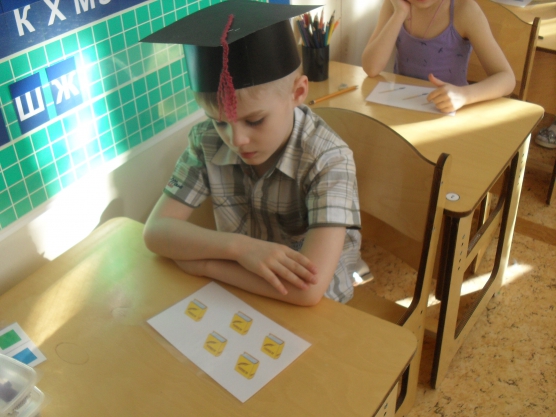

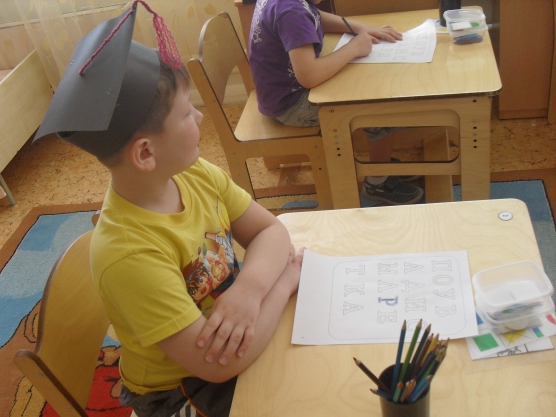
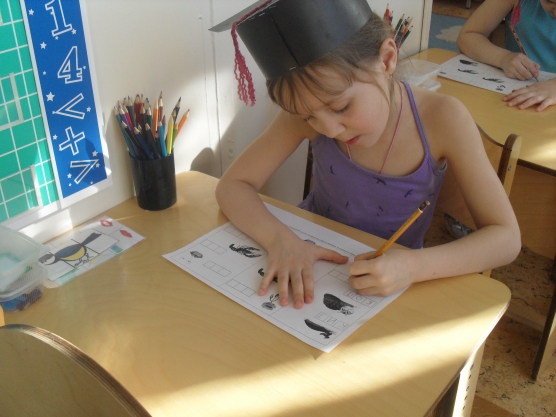
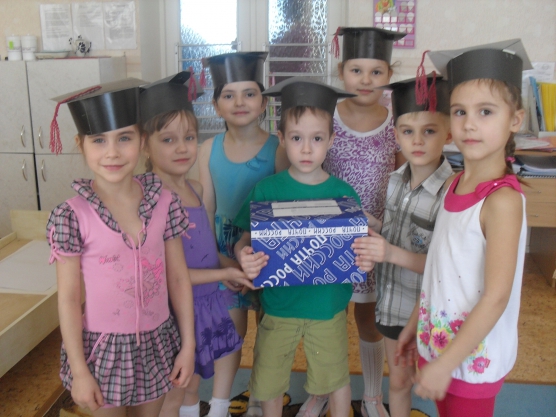
- What is a consonant sound in Russian
- School board
- The strangest flags of the world - πάπυρος
- Methods of conducting a psychological examination of children with zpr to schooling
- National flag and emblem of Nepal - symbols of the country
- Passage of game Call of Duty
- Download Belarusian riddles with riddles in the Belarusian language

 Live journal
Live journal Facebook
Facebook Twitter
Twitter